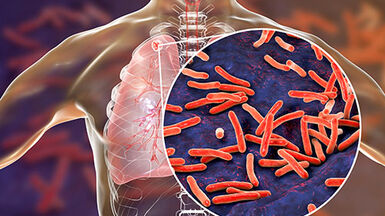At a glance

The European Programme for Intervention Epidemiology Training (EPIET) was created in 1995. Its purpose was to create a network of highly trained field epidemiologists in the European Union, thereby strengthening the public health epidemiology workforce at EU Member States and EEA level. Current EPIET alumni are providing expertise in response activities and strengthening capacity for communicable disease surveillance and control inside and beyond the EU. In 2006 EPIET was integrated into the core activities of ECDC. The European Public Health Microbiology Training Programme (EUPHEM) was initiated by ECDC in 2008.
In 2016, EPIET and EUPHEM became the ECDC Fellowship Programme, consolidating in this way the alignment of administrative processes and core curricular aspects.
Objectives
The ECDC Fellowship Programme has the following programme objectives:
- To contribute to strengthening the prevention, preparedness, surveillance and control of infectious diseases and other cross-border health threats or issues of public health concern in the EU/EEA Member States and at EU level, supporting the implementation of Decision 1082/2013/EU
- To contribute to enhancing response capacities for effective field investigation and communicable disease control at European, national and community level to meet public health threats, in particular for the EU response to cross-bored threats to health
- To contribute to strengthening the European and global network of public health professionals through the use of state-of-the-art, shared standards and methods, good practices and common public health objectives
- To contribute to knowledge transfers and capacity building within and between Member States;
- To facilitate innovative inter-disciplinary and multi-sector cooperation and communication to achieve the above objectives while adjusting to emerging needs
- To contribute to the reduction of disparity across Europe in the prevention, preparedness, surveillance and control of communicable diseases
Pathways
The ECDC fellowship programme is a two-year programme consisting of two distinct pathways:
- Field Epidemiology (EPIET) – training public health professionals to become specialists in intervention epidemiology.
- Public Health Microbiology (EUPHEM) – training microbiologists and other health professionals in public health microbiology.
The programme provides practical experience for participants and takes place at recognised training sites across the EU and European Economic Area (EEA) Member States. The Fellowship learning activities are grounded in the fellows’ service in public health settings, mostly at epidemiology departments or laboratories with a public health function. During the two-year training programme, all fellows work to reach the following common intended learning outcomes:
The programme is available to nationals of EU/EEA Member States.
On completion of the programme, graduates are considered experts in applying epidemiological or microbiological methods in order to provide evidence to guide public health interventions for communicable disease prevention and control.
The fellowship programme is funded by ECDC and the participating training sites in the Member States. EU-track fellows are employed by training sites that have signed an agreement with ECDC to fund their salaries. MS-track fellows receive the local salary from their training institutes. The participating institutes fund the salaries of supervisors and facilitators, as well as the costs for office space and fieldwork of the fellows.
ECDC funds travel costs (travel, accommodation and daily expenses) to modules for all EU- and MS-track fellows, salaries of scientific coordinators and training opportunities for supervisors.
Costs related to international assignments are the responsibility of the requesting body.




